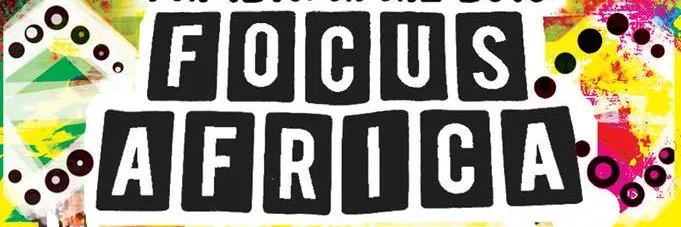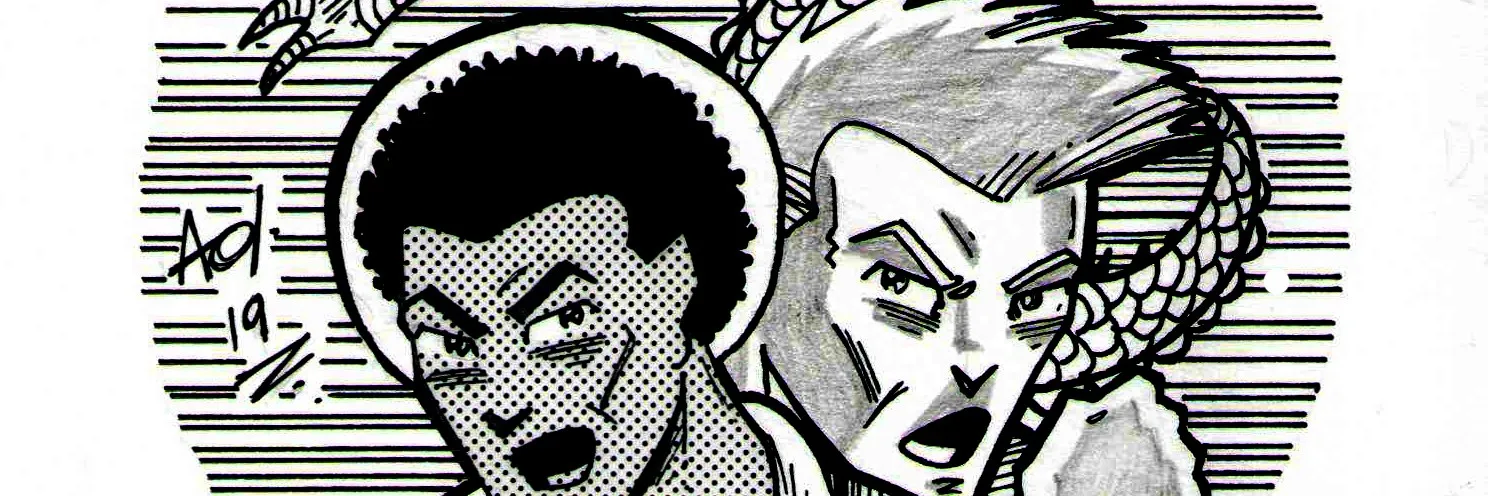 Its a sadly common story, with a near inevitable end: long established, community- supporting music venue gets shut down to be turned into unnecessary luxury flats. Community and music fans unite in inspiring, life-affirming protest to stop said luxury flats. The result? Unnecessary luxury flats. In June 2016 Legendary Dalston venue and community hub Passing Clouds looked as if it was going to follow that storyline too. Having been closed overnight as London saw an unprecedented decimation of its clubs and live music venues with rents being doubled, noise complaints, late licenses being revoked and in some cases no longer granted at all (in a borough ‘quota system) Londons famed nightlife was in crisis and it seemed that Passing Clouds would be just another depressing footnote.
Its a sadly common story, with a near inevitable end: long established, community- supporting music venue gets shut down to be turned into unnecessary luxury flats. Community and music fans unite in inspiring, life-affirming protest to stop said luxury flats. The result? Unnecessary luxury flats. In June 2016 Legendary Dalston venue and community hub Passing Clouds looked as if it was going to follow that storyline too. Having been closed overnight as London saw an unprecedented decimation of its clubs and live music venues with rents being doubled, noise complaints, late licenses being revoked and in some cases no longer granted at all (in a borough ‘quota system) Londons famed nightlife was in crisis and it seemed that Passing Clouds would be just another depressing footnote.
However, they chose to buck the storyline (to a degree) and it has come out the other end after protests, occupation, tussles with bailiffs and being made an Asset of Community Value by the council in October 2016 as new venue The Jago, The Jago has whole-heartedly taken on the mantel of community hub, hosting charities such as ‘My Yard which collects surplus food and distributes it to families on a ‘pay what you feel basis, to holding open mic nights for local talent. Make no mistake though, The Jagos bread and butter much like Passing Clouds before it is all about putting on brilliant live shows by the type of musicians which are often under-represented in venues across the UK. Tonights event neatly dovetails the old and the new together Focus Africa, the first of which was held at Passing Clouds nine years ago. Were here to witness the majesty of Awale, a London based band fusing Senegalese-soul with Afro-latin, fronted by Biram Seck. They are preceded by Kora master Diallo Kora from Guinea Conakry.
While we awaited the live acts we relaxed upstairs, under a canopy of brightly coloured and multi-patterned oblongs of African and Indian (and one tartan) print fabric, in a room hazed with incense smoke. The lighting was wall mounted, cleverly using old trumpets as lamp shades. The DJ plays a beautifully warm selection of African and Brazilian music, and the supremely well balanced sound system propels a couple through a salsa. The lady suggests I join her in a dance, but I decline expressing my limitations in both alcohol and, more importantly, dancing. Eventually we went downstairs just as Diallo was beginning. Standing and looking regal in a traditional gown, surrounded by members of his support band for the night Wuntanara sitting in front of various forms of percussion, resplendent in colourful African clothing, he greeted us warmly and thanked us for coming. As they began to play it became apparent that reviewing this kind of music is almost impossible. How do you review something so universally full of joy, full of what seems to be the very essence of ‘music of communication? The warmth radiated from the man, as he sang in his native tongue songs that sounded like they could only be about celebration. His playing of the Kora, a 21-string lute/harp hybrid instrument, was astonishingly lyrical in its own right.
 

Originating from West Africa, the Kora uses a calabash gourd as a resonator, itself covered with a leather sound board for tapping while plucking the strings. He made it dance. It reminded me of an album I discovered years ago, Jali Roll, which featured a duo of Kora players still one of the most purely hopeful records I own. Wuntanara are also nothing short of breathtaking put together by master drummer Souleymane Compo, bongos, tablas and a huge bass drum are pounded with all the enthusiasm of a bear on speed. hands were a-blur as rhythms overlapped rhythms, as Guinean dance beats had sweat pouring from the players and the public, who by now were throwing themselves wildly around the floor. It was one of the most energising, musically rewarding experiences I have witnessed and this was just the first part of the night.As the headliners set up, more and more instruments appear on the modest stage trumpet, sax, electric guitar, drum kit until it looked like they had impressively crammed an orchestra into a shoebox. Biram stood cross-armed and inscrutable, looking on as the band checked their instruments. Awalé were founded in London in 2009 by French guitarist Thibaut Remy, with members from as far afield as Tunisia, Cuba, France and Slovakia. You can hear these influences amongst a myriad of others most notably Afrobeat, Balkan music, North African music, Ethiopian Funk and Latin Jazz all seamlessly woven together into what they loosely call ‘Afro Gipsy Beat. They would better be described as a collective than anything else up to thirty musicians have collaborated with them so far, with a core band of seven musicians holding it together.

They were thought highly enough of for Tinariwen to chose them as support in Tunisia. This is where Biram comes in their latest collaborator, he has guided the band down the aforementioned Senegalese soul path. Birams vocals, often described as ‘ferocious and husky have been at the front of his own ‘Biram Seck Jhant Band for over ten years now, performing at events as diverse as Womad and Reading festival. Biram grew up in Dakar in a gawlo (minstrel caste) family. His grandfather was a revered singer and master of the xalam (the Wolof stringed instrument from which the banjo is said to descend). Both his presence and the horn-led songs reminded me inevitably I guess of Fela Kuti and the Africa 70 a serious, well versed band that showed its many years playing together. The music, after a brief mic adjustment that gives Biram his true voice, is glorious. The songs are sung with a certain weight, a certain gravitas less a pure celebration of joy and love it would seem, more about the necessity for them in the particularly harsh word we find ourselves. The various influences of the band members are constantly apparent, with wonderful little flourishes, none more so when the African guitar melody gives way to a full on psychedelic riff and the drums switch up into double time. It is a deeply moving moment, as both band and audience seem to be feeding off each others energy, the one creating new musical paths for the other to eagerly explore. At one point they seem to merge into a jazz outfit, and just when you seem to get a hold on that, theyre back on the Senegalese soul road, sounding at times like the mighty Ali Farka Toure, and Birams own influence, Youssou Ndour. At the end of the evening, Biram brings on a young man, (Modou Toure) no more than 25, in a plain shirt with a massive grin. He had been telling my friend all night that he was going to be a big singer someday. I miss the introduction, but old and young start to sing so beautifully together, and then the young man takes the next song, an encore, and sores with it. An astonishing voice, and a sense of tradition being passed on. They embrace, and you sense it is all the audience can do to stop themselves running onstage and embracing them too.This was a truly special evening, one that felt greater than the sum of its parts and its parts were mighty indeed. Music for the soul real soul music in a venue which represents rebirth, hope, community and tradition. It seems depressing that bands like Awale and masters like Diallo dont have record contracts, but not surprising. Thankfully there are other ways to get their message across, and venues like The Jago help them do just that. Long may The Jago last.
Awalé have recently started a crowdfunding campaign to help support the production and release of their second album Yewoulen. If you’d like to find out more, check it out here.
They also have a number of upcoming shows, take note.19th May @ Hootananny : Biram Seck Trio5th July @ 91 Brick Lane : Original Roots feat Awalé13th Sept @ Peggys Skylight, Nottingham14th Sept @ Kingskerswell Parish Church TQ12 5LD15th Sept @ Lancaster Jazz Festival
Written by Tom Williams
← Back to blog


